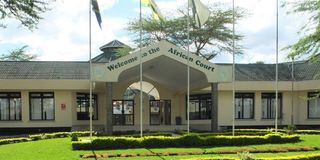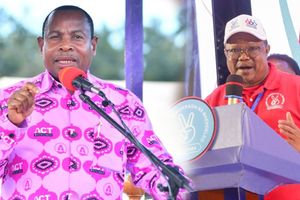African Court calls for reparations for women affected by conflict

Arusha. Women in areas steeped in civil wars and other forms of conflicts should receive compensation for their suffering, as they are often the most affected by such atrocities.
This was stated by the President of the African Court on Human and Peoples' Rights, Lady Justice Imani Daud Aboud, during a judges' training session held at the court premises in Arusha.
The session, themed 'Rendering Justice for Women through Reparations,' aimed to address gender-related injustices.
“We have also been reviewing customary laws that contradict international agreements on gender equality, human rights, and people’s rights. Issues such as early marriages and women's right to inherit property must be addressed,” said Lady Justice Aboud.
She cited the case of the Republic of Mali, which was required to amend its laws in accordance with international human rights agreements following a case filed at the African Court in Arusha.
“It is the responsibility of the court to set standards and eliminate laws that contradict human rights and civilization,” she added.
Professor of Public Law and former United Nations Special Rapporteur on trafficking in persons, Dr Joy Ngozi Ezeilo, delivered a presentation on 'Gender Mainstreaming in Reparations.'
She discussed historical injustices and systemic violations affecting women and girls, particularly gendered reparations.
“We are addressing sexual violence in conflict situations, child and forced marriages, and other harmful cultural practices,” stated Professor Ngozi.
The training session was attended by African Court Judges, ambassadors, legal scholars, government representatives, and members of non-governmental organizations.
Program Officer for the Network of African National Human Rights Institutions (NAWHRI), Foluso Adegalu, emphasized the importance of addressing reparations in relation to women's rights in Africa.
“Women, as one of the most vulnerable groups on the continent, are central to the discussion on reparations. As representatives of national human rights institutions, we are committed to strengthening the capacity and activity of the court in protecting and promoting human rights in Africa,” he said.




